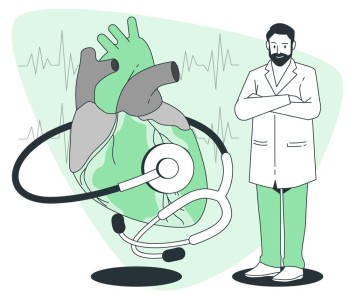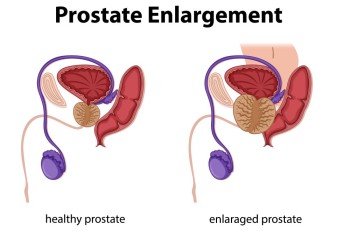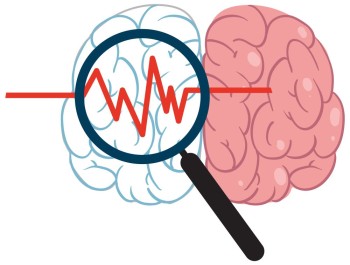
Magnetic Resonance Imaging (MRI) Kub, or Kidneys, Ureters, and Bladder, is a specialized diagnostic procedure that provides detailed images of the abdominal region.
MRI Scan KUB with Cost
MRI Kub Scan in Detail
Introduction
Magnetic Resonance Imaging (MRI) Kub, or Kidneys, Ureters, and Bladder, is a specialized diagnostic procedure that provides detailed images of the abdominal region. It plays a crucial role in detecting and evaluating various conditions affecting the kidneys and urinary system.
Purpose and Significance
Detecting Kidney Abnormalities: MRI Kub is particularly effective in identifying kidney abnormalities, such as tumors, cysts, and structural issues, allowing for early intervention and treatment.
Evaluating Bladder Conditions: The scan also aids in assessing bladder conditions, including detecting tumors, identifying blockages, and evaluating the overall health of the urinary bladder.
Preparation for MRI Kub
Scan
Clothing and Accessories: Patients are typically advised to wear loose, comfortable clothing, and to avoid metallic accessories that may interfere with the magnetic field during the scan.
Dietary Guidelines: In some cases, patients may need to follow specific dietary guidelines before the MRI Kub scan to optimize imaging quality.
Procedure Steps
Patient Positioning: Proper positioning is crucial for accurate imaging. Patients lie on a specialized table, and the region of interest is positioned at the center of the magnetic field.
Use of Contrast Agents:
Depending on the specific case, contrast agents may be administered
intravenously to enhance the visibility of certain structures and provide more
detailed images.
Duration of the Scan: An MRI Kub scan typically takes around 30 to 45 minutes, during which patients are required to remain still for optimal imaging.
Conditions Diagnosed with MRI Kub
Kidney Stones: The scan is highly effective in identifying and locating kidney stones, helping in the assessment of their size and potential impact on kidney function.
Tumors and Cysts: MRI Kub is instrumental in detecting both benign and malignant tumors, as well as cysts in the kidneys and surrounding structures.
Advantages Over Other
Imaging Techniques
High-Quality Imaging: MRI Kub provides high-resolution, detailed images, surpassing the capabilities of traditional imaging techniques like X-rays or ultrasounds.
Non-Invasiveness: Unlike certain invasive procedures, MRI Kub is non-invasive, eliminating the need for surgical interventions while providing valuable diagnostic information.
Understanding MRI Kub Results
Consultation with Radiologists: It's essential for patients to discuss the results with their healthcare providers and radiologists to gain a comprehensive understanding of the findings.
Timely Interpretation Importance: Prompt interpretation of MRI Kub results is crucial for timely diagnosis and the initiation of appropriate treatment plans.
Risks and Safety Measures
Magnetic Safety: Patients with metallic implants or devices may need alternative imaging methods due to safety concerns related to the strong magnetic field of MRI.
Contrast Allergies: Although rare, some individuals may experience allergic reactions to contrast agents, underscoring the importance of pre-screening.
Patient Comfort and Experience
Minimizing Anxiety: Healthcare providers aim to create a comfortable and reassuring environment to minimize anxiety during the MRI Kub scan, addressing any concerns the patient may have.
Open MRI Options: For patients with claustrophobia or anxiety, open MRI machines may be available, offering a more spacious environment without compromising imaging quality.
Conclusion
In conclusion, MRI Kub stands as a pivotal diagnostic tool, providing unparalleled insights into the kidneys, ureters, and bladder. Its non-invasive nature, coupled with high-quality imaging, makes it an invaluable resource for the detection and evaluation of various urinary system conditions.
FAQs (Frequently Asked Questions) about KUB MRI
Is the MRI Kub scan safe during pregnancy?
While
generally considered safe, pregnant individuals are advised to inform their
healthcare provider before undergoing an MRI Kub scan to assess potential risks
to the fetus.
Can I undergo an MRI Kub scan if I have a history of claustrophobia?
Yes, some
facilities offer open MRI options to accommodate individuals with
claustrophobia. Inform your healthcare provider about your concerns to explore
suitable alternatives.
Are there any specific dietary restrictions before an MRI Kub scan?
Depending on the case,
your healthcare provider may provide specific dietary guidelines before the
scan to optimize imaging results. Follow any instructions provided.
How soon can I resume normal activities after an MRI Kub scan?
The majority of individuals can return to their regular activities right after undergoing the scan. However, if
sedation is administered or if you feel unwell, it's advisable to follow your
healthcare provider's guidance.
Can I request a copy of my MRI Kub images for personal records?
Yes, you can typically request a copy of your MRI Kub images for personal records. Consult with your healthcare provider or the imaging facility for the necessary arrangements.
Is there any age restriction for undergoing an MRI Kub scan?
MRI Kub scans are
generally safe for individuals of all ages. However, specific considerations
may be made for infants and very young children. Consult with your healthcare
provider for age-related guidance.
Can I bring a friend or family member into the MRI room with me?
While companions are
typically not allowed in the MRI room due to safety concerns, most facilities
provide intercom systems for communication. If you have special considerations,
discuss them with the healthcare staff beforehand.
How long does it take to receive the results of an MRI Kub scan?
Results are usually
available within a few days. The exact timeframe may vary, and it's essential
to consult with your healthcare provider for a detailed explanation of the
findings.
Can I undergo an MRI Kub scan if I have a history of allergic reactions to contrast agents?
Individuals with a
history of contrast allergies should inform their healthcare provider
beforehand. Alternative imaging methods or pre-medication may be considered to
mitigate the risk of an allergic reaction.
Can I breastfeed after an MRI Kub scan if I received a contrast agent?
While contrast agents are generally considered safe for breastfeeding mothers, it's advisable to discuss this with your healthcare provider. They Can offer advice tailored to your particular circumstances.
(0)
Login to continue



